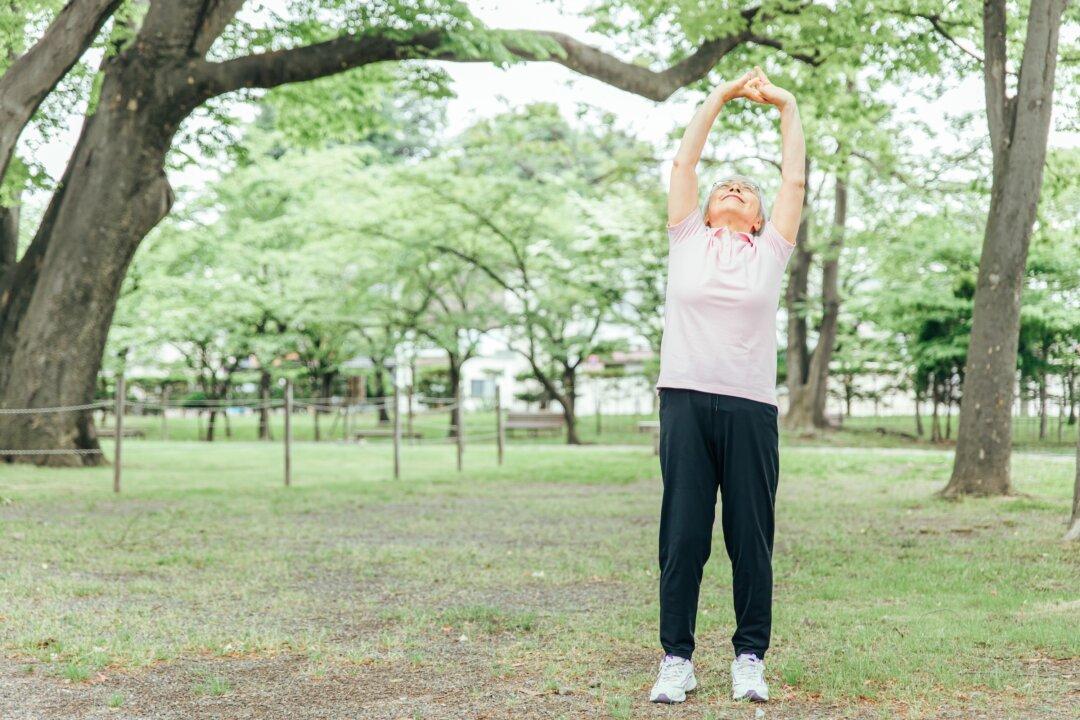Dr. Li Jialing, director of Aroma Traditional Chinese Medicine Clinic in Taiwan and a double-certified aromatherapist by the National Association for Holistic Aromatherapy in the United States and the International Federation of Aromatherapists in the UK, recently explained on the program “Health 1+1” how aromatherapy can be used to address various discomforts during menopause.
Li said, according to ancient Chinese medicine classics, menopause typically begins at the age of 49 for women and 56 for men. Men also experience menopause, but women start earlier.
Alleviate Red Flashes and Hot Flashes
Menopausal women often experience the discomfort of hot flashes. They are usually a flurry of heat that doesn’t last long, but in some cases, are accompanied by night sweats and symptoms of a weak heart.According to Li, Traditional Chinese Medicine (TCM) categorizes hot flashes into five types, each caused by different factors:

Li recommended pressing two acupuncture points to alleviate hot flashes: the Daling (PC 7) on the pericardium meridian and the Taichong (LR 3) on the liver meridian. In addition, she suggested consuming collagen-rich and heat-clearing foods such as peach gum, white fungus, black fungus, sweet potato leaves, okra, sea cucumber, and bird’s nest*.
According to TCM, meridians are the pathways through which energy flows in the human body, facilitating the transportation of “qi” (vital energy) and blood throughout the body. These substances form the foundation of the human body and sustain its vital activities.
The human body has 12 major meridians, each corresponding to an internal organ. These organs are connected to the surface of the body through the meridians. Acupuncture points are special points located on the meridians, and by stimulating these points through acupuncture or medical massage, it is believed that corresponding internal organ diseases can be treated.


Eliminate Heart Palpitations
Many women going through menopause may experience sudden heart palpitations, which can be difficult to distinguish from a heart problem. Li advises getting an ECG test to rule out any heart issues.In TCM, palpitations are classified into three types:
The theory of yin and yang in the basic theory of Chinese medicine holds that there are two corresponding characteristics of yin and yang in all things or phenomena in nature. For example, there is earth and sky, and heat and cold. Yin and yang are opposing energies, but they are interdependent and indispensable to each other. When yin and yang are in balance, people will be healthy and energetic, and life will be more harmonized and stable.

Reinforcing the Bones
Osteoporosis is a major concern for menopausal women, as it can lead to fractures in the vertebrae, femur, and wrist bones. Symptoms such as “sore bones” and “shrinkage” can indicate the presence of osteoporosis.Essential Oils Can Relieve Menopausal Discomfort
A study published in Complementary Therapies in Medicine in 2021 showed that lavender essential oil effectively improved sleep and menopausal symptoms in postmenopausal women with insomnia. The study was a double-blind, randomized, controlled trial in which the test and control groups inhaled Lavandula angustifolia essential oil and sunflower oil, respectively, for 29 days.The study found that those who inhaled lavender essential oil had a significant reduction in time spent asleep, depression, hot flashes, and postmenopausal symptoms, an improvement in wake after sleep onset, and an increase in sleep efficiency as shown in polysomnographic data.

Li suggests that to adjust the autonomic nerve, nourish the liver, and relieve depression, one can use essential oils such as lemon, rose, bergamot, and salvia. To nourish the liver and the kidney, use rose geranium, lavender, Roman chamomile, sage, neroli, chaste tree, European red pine, and European fir.
Li also provides several aromatherapy formulas with essential oils to alleviate menopausal symptoms:
*Some of the herbs mentioned in this article may be unfamiliar, but they are generally available in Asian supermarkets.




